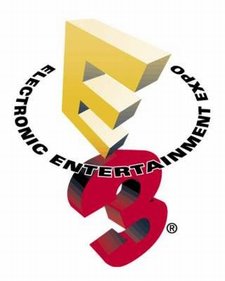 By and large, most of the major publishers phoned in their presentations at E3. There were bright spots all around (yes, even in Nintendo’s presser), but permeating all the news, regardless of your own feelings about the show, Nintendo, or otherwise, was the stink of failure. Not from the Big Three, or the third parties (which were there peddling en masse), but from E3 itself.
By and large, most of the major publishers phoned in their presentations at E3. There were bright spots all around (yes, even in Nintendo’s presser), but permeating all the news, regardless of your own feelings about the show, Nintendo, or otherwise, was the stink of failure. Not from the Big Three, or the third parties (which were there peddling en masse), but from E3 itself.
Twenty people showed up for the questionably cast “Chainsaw Massacre” keynote from Texas governor Rick Perry. Nintendo said it would no longer showcase “core games” at E3, and would instead use the venue, such as it is, for “new concepts.” In the run up to the show, major publishers dropped out of the ESA, which is the group behind E3. Several publishers showed up in LA this week and put on rogue “un-E3” shows and parties. Capcom, the huge gaming publisher, held a press conference about a movie. The halls, packed in year’s past, were barren. We saw many games we’ve known about for a year or more (some of which were delayed, again, or worse).
So let’s just get right down to it, then. E3 needs to change, or go away.
Blake and I talked about the show via my shiny new iPhone the other day, and I put forth the opinion that E3, as it is today, is a show without identity or purpose. The driving force in the gaming industry today are the non-traditional players that did not exist two or three years ago. They could care not less about E3 as it exists today.
Now, on that point, don’t take the easy bait and label these people “casual gamers” or “retard gamers,” as MS, Sony and many hardcore publishers like Epic Games would have you do. They aren’t. Related to that is the common misconception that Nintendo is abandoning the base (which, unfortunately, was amplified by the MIDI-fest press conference). There is a mountain of evidence, some of it as old as the Nintendo DS and some of it as fresh as The Conduit/Mega Man 9/Wario Land: Shake It/Etc etc etc, that disproves any such abandonment is taking place.
Instead, the base is growing, and I again ask what’s wrong with having more people, of many tastes and talents, contributing to the gaming gene pool? Even Wii Music, panned by Blake and the core press attending E3 (except Eurogamer, they liked it for some reason), will undoubtedly find a home and make millions. And that’s going to be OK, believe me. Nothing will suffer because of a hot-selling MIDI creator, just as gaming as a whole has not suffered because of Nintendo’s incessant Pokemon franchise.
Who knows, when a final build is available later this year, the game’s unorthodox and even borderline “dumbed down” controls could very well surprise us all, just like a certain joystick-less game console did way back in 1986 (look up any of Atari’s attack ads against the NES for that period, you’ll see what I mean).
But this growing force in gaming is largely unrepresented by a show like E3. At the same time E3, in the past, was THE show for interactive entertainment. It’s a Catch-22. Meanwhile, the media that went in there this week, the media that shapes the message coming out of the show to our eyeballs, is still largely representative of the core gamer. They, and many of us, were expecting an entirely different show than what we received. It led, sadly, to many a negative comment thread or two. Or ten. It will surely happen again, but that’s the nature of the beast.
And as gaming gets more popular, with more people, I only see E3 getting worse. ESA president Mike Gallagher promised to tweak the event once again next year, but his spin reeks of rearranging the deck chairs on a particularly unlucky ocean liner.
It’s quite a quandary. In this light, I’d prefer it if E3 just shriveled up and died. Publishers seem to agree. Just yesterday, EA and Ubisoft (and seemingly Nintendo), all hinted that smaller, private shows, hosted by the publishers themselves, would be a better use of time, effort and treasure. Nintendo specifically, with its “we’re happy making money all year, not just December” mentality, appears to have started down this road already. EA, Ubisoft, and others appear to be on the edge, ready to jump alongside Nintendo into the era of vendor-driven shows, or something similar.
As a former journalist who covered the Linux industry for four years, I can tell you this is how many big vendors do shows today. Red Hat, Novell, and even companies outside Linux, like Microsoft and Oracle, all do big shows that draw thousands of people. Oh, and these people aren’t just journalists, they’re the customers–the people who REALLY drive their business. Blizzard’s annual user show is a great example of how this format could help gaming. At their show, customers and media get to grill developers about the bugs in WoW side-by-side, and the developers openly respond. As an aside, I really hope Activision doesn’t mess with that formula (re: Activision Blizzard merger).
The one big thing most people will remember about this year’s E3 was how forgettable it was. Behind that, probably Final Fantasy XII. And even that announcement, when you dig deep into it, comes with its own set of harbingers, specifically the ones that revolve around spiraling development costs and a niche user base with a less-than-ideal size.
There’s just no need for a show like E3 anymore. It has to change, or die. I vote die.
